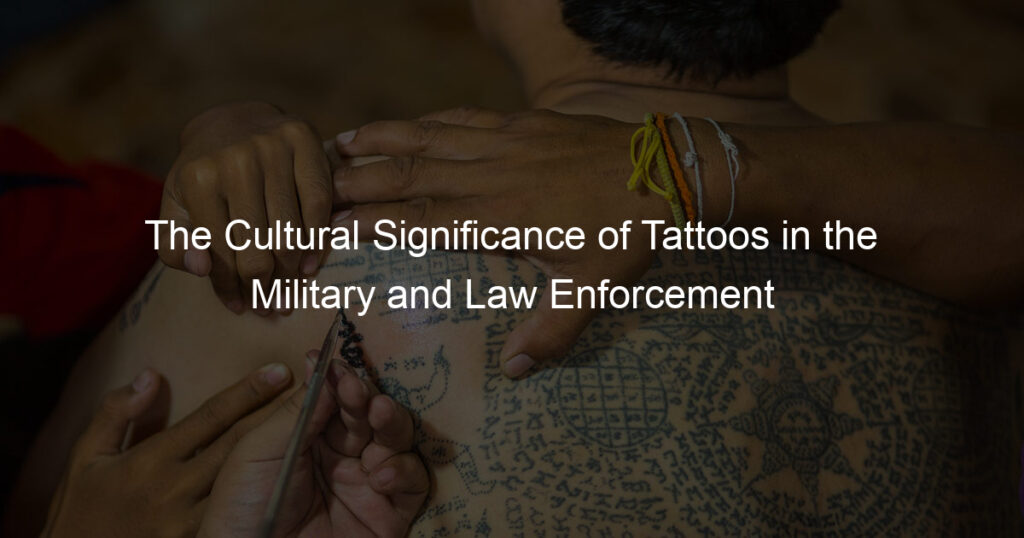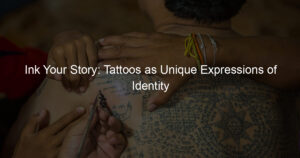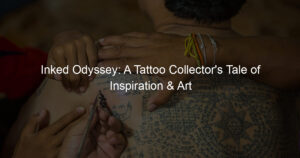Throughout history, tattoos have been used as a form of self-expression and as a way to commemorate important events or people.
For many military and law enforcement members, tattoos also hold significant meaning. They can be used to show solidarity with fellow service members, to remember fallen comrades, or to pay tribute to one’s country.
In recent years, there has been an increase in the number of military and law enforcement personnel who are getting tattooed. This is likely due to the growing acceptance of tattoos in society, as well as the unique bonding experience that comes with getting inked together.
Whether they’re large or small, colorful or black-and-white, each tattoo tells a story and is a reminder of what these men and women have sacrificed for their country.
What does a tattoo mean in the military?
Getting a tattoo is practically a rite of passage for many members of the military.
It’s seen as a way to symbolize your dedication to and pride in that service, and a visible representation of countless stories, experiences, and beliefs shared among all branches of the armed forces.
For many servicemembers, tattoos are meaningful reminders of one’s regiment and citizenship – a reminder that remains even if one has been discharged or has switchebranchesch.
They often carry personal messages celebrating friendship or courage seen during active duty, or commemorating momentous occasions throughout the journey.
This symbolic act serves as an eternal promise between individuals and the military they proudly serve – it’s no wonder why tattoos have become so popular amongst those in or affiliated with the Armed Forces.
Why are tattoos so common in the military?
Tattoos have become a popular way for members of the military to represent their identity and values.
Many people in the military get tattoos to honor their service, foster a sense of camaraderie, and keep a nostalgic reminder of their bbodiesofbodies experiences they had while serving.
For those new to the military, getting tattoos is an easy way to fit in with others who have more experience and understand more of what military life entails.
The bond that these tattoos create between service members makes it makes for them to rely on each other in difficult times, both during active service overseas and when transitioning back home afterwarafterwardg tattoos associated with the military can also be empowering as it provides a means for service members to share stories about where they have been, what they have contributed, and how it has changed them.
Do tattoos matter in the military?
The age-old debate over whether tattoos in the military should be allowed or not is one that still has yet to be solved.
While there some arguelitary members should have the freedom to express themselves through tattoos, others counter that a sense of discipline and respect must prevail, regardless of what’s on a person’s skin.
Ultimately, this debate comes down to an individual’s preference and values; if someone considers a tattoo as an important part of their identity then they may feel strongly about being allowed to display it while on duty.
Still, with strict regulations pertainiabouthow big, and what kind of tattoo can be displayed in the military, it seems clear that although having one isn’t necessarily bad in and of itself, it still faces opposition within all branches of the armed services.
When did tattoos become popular in the military?
Tattoos have become a pervasive part of military culture, but the exact date when they started appearing in militarized history is unknown.
However, scholars and historians agree that tattoos were part of war decorations as far back as ancient Greek and Roman civilizations. In more recent history, tattooing did not become popular among military personnel until after World War Two.
Humans have always been naturally curious about adorning their bodies with beautiful designs and symbols, which helped sailors adapt to these art forms – particularly when it came to depicting patriotic imagery.
After WWII, tattoos began to be closely associated with American servicemen who returned from overseas with decorated skin proudly showcasing their service to honor the country and their experience abroad.
This tradition has trickled down into modern times, proving that tattoos are here to stay within the realm of the armed fo races for many years to come.
What is the history of tattooing and its significance?
Tattooing is an art form that has been around since ancient times. It began as a way for people to visually express themselves, but over time, it developed into much more.
Different cultures used tattoos to signify coming of age or the completion of a ritual; prisoners and military personnel used tattoos to mark rank or signify belonging; and those with medical conditions used them as reminders for medications.
Today, tattoos are seen as a form of self-expression, allowing people to outwardly show their love for art, remembrance of an event or person, devotion to an animal or cause – the possibilities are endless!
Regardless of what the tattoo may be meant to represent, they each have their own special story and history that will stay with them weartheirforever.
How standard is tattoo military?
Tattoos are seen more often among members of the military than in most other population demographics.
Their prevalence is due to a mixture of factors, from military culture and its emphasis on camaraderie and identity all the end of Prohibition which saw tattoo parlors spring up around bases just like bars had done before them.
Even with strict regulations about where a tattoo can be placed, different branches have varied stances. The Navy allows tattoos that cannot be visible while wearing a certain uniform, while the Army rules allow any kind of ink designs with restrictions only when they could be considered offensive.
In this day and age, having tattoos in the military has become commonplace thanks to its deep-rooted history and far-reaching impact.
In Conclusion
From patriotic expressions to emblems of loss, grief, ef and r, and remembrance, tattoos have always played an important role in the military and law enforcement communities. Today, they continue to be a source of both individual and collective pride for members of these groups.
In addition to their aesthetic value, tattoos also serve as a reminder of the wearer’s commitment to their chosen profession – and the challenges, sacrifices, es and r, and risks that come with it.














